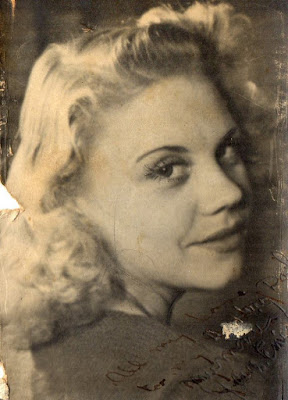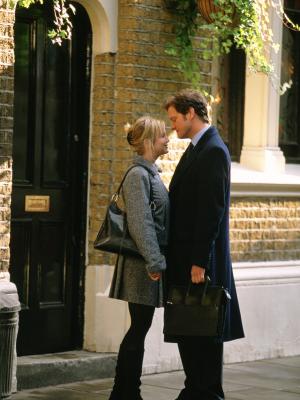My Mother’s Voice
She died on Friday the 13th in 2012.
My real mother—not the stranger in a wheel chair, head nodding on her shoulder—Enid Maude Good nee Hayden, was British-born and had a lovely London lilt to her voice her whole life even though she left England in the mid-1950’s. I suppose at thirty, her vocal patterns were already frozen in place. Sounding like a cross between Deborah Kerr and Judi Dench, there was something warm and welcoming, layered with a cool crispness, in her voice. She charmed everyone I ever knew when she called them ‘love’ and of course, she called everyone love. “Your mother’s voice!” friends would gush, “I just love her accent.” I shrugged the first time. An accent? I hadn’t realized. It was just my mother’s voice. It was how she always sounded.
That voice was even lovelier when my mother sang. As a girl growing up in Canada in the sixties, I’d watch while she slipped thick black vinyl records out of their paper sheafs and onto the spindle of our hi-fi set. My mother sang along while she worked around the house. Not the songs of the 60’s, not the Beatles or the Stones, but the songs she loved as a young woman in the 1940’s and 50’s. Dusting to Eddie Cantor’s Josephina, Please don Leana on the Bell. Waxing the floors to Patti Paige’s How Much is that Doggie in the Window. Washing the windows with vinegar and newspapers to Doris Day’s Que sera, sera. Nat King Cole played in the back ground as my mother showed me how to roll out a pie crust on the floured formica dinette table top, while she boiled down the cherries from the surrounding orchards, adding scoops and scoops of sugar to the bubbling pot.
She taught me skills whose value was short-lived like adding ‘blueing’ to the wash cycle and feeding clothes carefully through the ringer washing machine in the basement, minding my fingers. Telling me about the girl she worked with at a factory in England during the war. A girl who got her long hair caught in the works of a machine and been badly hurt. All the girls had worn snoods after that.
She also gave me my love of reading, something I can’t possibly put a value on. My mother never stopped reading, not until those final years. I grew up surrounded by her books. Books from the book of the month club. Books from the library. There were novels opened on her bedside table, books stacked on the end table next to the couch. When we moved to California and she went back to work, she’d read when she nipped home for lunch, catching some sun on the balcony of our Santa Monica apartment, a cheese sandwich and a cup of tea close at hand. She loved British mystery writers mostly. P.D. James. Ruth Rendell. Later, Elizabeth George. Elizabeth George who I would come to learn wasn’t a British writer at all, but an American author based in Oregon. The last book I ever gave my mother was an Elizabeth George mystery, A Traitor to Memory. Inspector Lynleys’s right hand woman, Barbara Haversham, has to cope with her own mother’s diminishing mind. That was, of course, before I knew she’d never be able to read it, would merely sit with it in her lap, finger running over and over the page.
That’s a story my mother told me the first time she helped me dye my own hair in the bathroom of our apartment in San Juan when I was fifteen. We turned my dishwater blonde hair to summer blonde using a bottle of Nice ’n Easy, an old dye-stained towel around my shoulders. My results were more successful than hers except for the fact that virginal hair is never the same after that first dye job, the gloss on the shaft forever gone, the battle of the split and brittle bleached ends, an eternal battle.
When I was little I loved playing with her discarded beauty products: empty jars of her old cold cream with smooth polished bowls inside that I never tired of capping and uncapping. Blue glass bottles of Evening in Paris cologne, the cobalt color, deep and lush in the light. I wanted so much to be beautiful like her. Curvaceous and flirtatious. To throw away my stupid glasses. To wear the strapless red chiffon dress hanging in her closet, longing for breasts large enough to fill it out and hold it up. I wished I could go to a party with my hair up in a glamorous chignon like Audrey Hepburn too, wearing nothing but a pale green sheet draped around my body the way my mother did, green eyeshadow on her lids, deep rose lipstick accenting her tan. She blushed and laughed away my father’s compliment when he said she looked like a Greek goddess. Her gold earrings dangling over her bare brown shoulders, she looked like a movie star to me.
In my mother’s world, looks counted. They just did. Being attractive, looking your best for your husband in particular, for men in general, and for yourself as a point of personal pride. They were part and parcel of the bargain. You give me food, shelter, and security. I give you sex, beauty and comfort. Keeping a clean and tidy house, beds made, nothing slovenly. Three course dinners, dessert every day. All of that mattered.
Standing by your man mattered too. A woman’s place is with her husband, my mother told me once. She’d left her family in England when we moved to Libya, then Turkey, and back to Libya, before sailing across the ocean, emigrating to Canada, first in Toronto, then Niagara Falls before moving to Puerto Rico, finally landing in California in 1969. Forty four years old and she jumped into the job market, getting a job at General Telephone because my father, ten years her senior was finding it tough getting work. She came from a generation of women and a state of mind that left her feeling guilty about the fact that she was taking a job from some man with a wife and kids to feed, except of course, she was a woman with a husband and kids to feed now too. A loyal card carrying member of the Communication Workers of America until she reached retirement age some twenty years later, I think my mother loved every minute of those twenty years. Being out in the world, earning her own way, empowered her.
On the window sill opposite my bed, there are six cobalt blue bottles in assorted shapes and sizes that catch my eye in certain lights. By daylight, they are bright and sparkling, the kind of shiny objects that attract children and cats. By moonlight, they are rich and luminescent, inviting you to look deeper, to see what’s inside, beneath the surface shimmer. Deep inside I see my mother’s bottles of Evening in Paris.
Like my mother’s bedside table, mine is always crowded with multiple books. I took back her copy of Traitor to Memory; it's on a bookshelf in the living room. While I don’t do it often enough, I still make a pretty mean pie crust. On the other hand, my singing voice is a total failure. I don’t care. I sing anyway.
When I was little I loved playing with her discarded beauty products: empty jars of her old cold cream with smooth polished bowls inside that I never tired of capping and uncapping. Blue glass bottles of Evening in Paris cologne, the cobalt color, deep and lush in the light. I wanted so much to be beautiful like her. Curvaceous and flirtatious. To throw away my stupid glasses. To wear the strapless red chiffon dress hanging in her closet, longing for breasts large enough to fill it out and hold it up. I wished I could go to a party with my hair up in a glamorous chignon like Audrey Hepburn too, wearing nothing but a pale green sheet draped around my body the way my mother did, green eyeshadow on her lids, deep rose lipstick accenting her tan. She blushed and laughed away my father’s compliment when he said she looked like a Greek goddess. Her gold earrings dangling over her bare brown shoulders, she looked like a movie star to me.
In my mother’s world, looks counted. They just did. Being attractive, looking your best for your husband in particular, for men in general, and for yourself as a point of personal pride. They were part and parcel of the bargain. You give me food, shelter, and security. I give you sex, beauty and comfort. Keeping a clean and tidy house, beds made, nothing slovenly. Three course dinners, dessert every day. All of that mattered.
Standing by your man mattered too. A woman’s place is with her husband, my mother told me once. She’d left her family in England when we moved to Libya, then Turkey, and back to Libya, before sailing across the ocean, emigrating to Canada, first in Toronto, then Niagara Falls before moving to Puerto Rico, finally landing in California in 1969. Forty four years old and she jumped into the job market, getting a job at General Telephone because my father, ten years her senior was finding it tough getting work. She came from a generation of women and a state of mind that left her feeling guilty about the fact that she was taking a job from some man with a wife and kids to feed, except of course, she was a woman with a husband and kids to feed now too. A loyal card carrying member of the Communication Workers of America until she reached retirement age some twenty years later, I think my mother loved every minute of those twenty years. Being out in the world, earning her own way, empowered her.
On the window sill opposite my bed, there are six cobalt blue bottles in assorted shapes and sizes that catch my eye in certain lights. By daylight, they are bright and sparkling, the kind of shiny objects that attract children and cats. By moonlight, they are rich and luminescent, inviting you to look deeper, to see what’s inside, beneath the surface shimmer. Deep inside I see my mother’s bottles of Evening in Paris.
Like my mother’s bedside table, mine is always crowded with multiple books. I took back her copy of Traitor to Memory; it's on a bookshelf in the living room. While I don’t do it often enough, I still make a pretty mean pie crust. On the other hand, my singing voice is a total failure. I don’t care. I sing anyway.
“When I was just a little girl
I asked my mother
What will I be
Will I be pretty
Will I be rich
Here's what she said to me
Que sera, sera
Whatever will be, will be
The future's not ours to see
Que sera, sera
What will be, will be.”If you’re old enough to know this song, you probably hear the voice of Doris Day singing. Me? I hear my mother’s voice.



